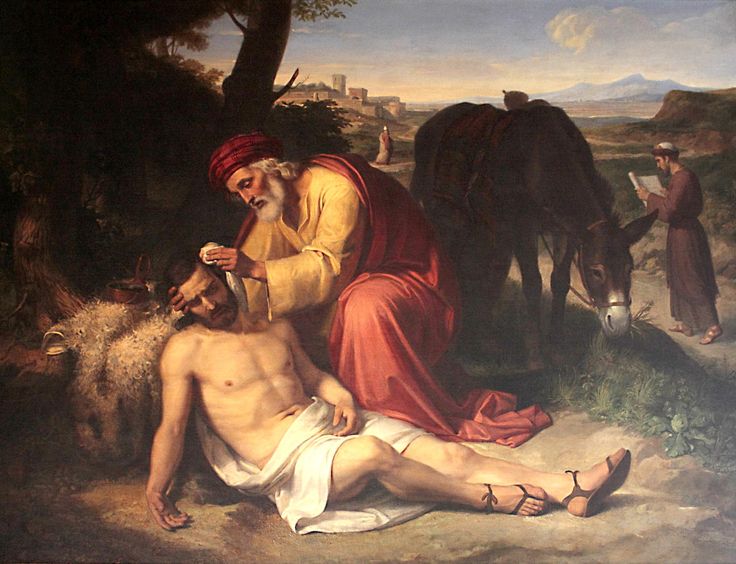 |
| Pelegrí Clavé (1811- 1880) |
I'm not sure what the Novus Ordo gospel was for today, but the TLM gospel was the Good Samaritan. It's interesting that the gospel begins with two questions. The first from the teacher of the law is: "What must I do to possess eternal life?" Jesus responds (like a good Celt) with another question? "What is written in the law?" The lawyer responds with the two great commandments and Jesus essentially says. Yes, you got that right; now go do it. And then we get another question from the lawyer trying to justify himself. "Who is my neighbor?" Jesus responds with the famous parable of the Good Samaritan and the question, "Who acted like the man's neighbor?" The lawyer can't even bring himself to identify the nationality of the despised Samaritan. One wonders at his indignation when Jesus admonishes him to "Go, and do thou in like manner."
In our homily this morning, Father described the journey of the Jew from Jerusalem down to Jericho as a metaphor for a man going from the city of grace to the city of sin. So we can look at the parable and the aid of the Good Samaritan from both a physical and spiritual way.
The Jew physically walks the road toward the sinful city. Why? Is he going there to sin? We don't know. A priest "going down the same way" (Why was he going toward the city of sin? To preach to the sinners? Or to engage in sinful behavior himself?) and a levite, both men of faith, ignore the physically wounded Jew, a man of their own race.
But ye say, If a man shall say to his father or his mother, That wherewith thou mightest have been profited by me is Corban, that is to say, Given to God.
But it isn't just the physical condition of the man that's addressed here. And, in fact, the robbery on the road may be a blessing in disguise if it keeps the man from going further toward the sinful city. However, he is now in a serious condition. Would he have died without the Good Samaritan's help? Would he have bled to death or died of thirst?
Since the priest and levite ignore him physically they also fail him in his need on the spiritual level. What if his wounds lead to physical death? Is he to leave this earth with no words of comfort and repentance. According to what I've read about Jewish rituals for the dying, the last thing the dying should do is to confess their sins and recite the Shema:
Hear, O Israel, the Lord our God, the Lord is One (Deuteronomy 6:4)
It is the Good Samaritan, the "foreigner," who has compassion and serves the physical needs of the man, giving first aid and leaving him in the care of another with a promise of restitution on his return. We don't know whether the Samaritan was going to Jerusalem or Jericho, but his actions speak loudly that he was a man of charity which is the purpose of all the laws of faith. What is the great commandment? Love and serve God first, but then love your neighbor as yourself! The men of the law ignore it; the despised Samaritan gets it right! May we always imitate that good man and serve God by taking seriously the obligations of charity.

No comments:
Post a Comment